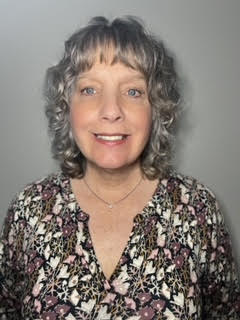Buying Your First Home: Keys to Remember
by Natalie Gonterman 05/09/2021

Photo by Roman Samborskyi via Shutterstock
Buying your first home is exciting! And scary! But you don’t have to fear the process if you take the time to become fully prepared for homeownership. Below are the seven primary keys to preparing yourself and smoothing the process.
How to Know You’re Ready
- Determine how much you can afford. The first step to homeownership is figuring out what fits your current budget. Note that although your income may go up over time, buying a home, speculating that you’ll make more money and can afford a bigger payment is a recipe for disaster. In general, you don’t want your housing costs (mortgage payment, insurance, property taxes, HOA) to be more than 25% of your take-home pay.
- Research which mortgages can save you the most money. A conventional loan, with at least 20% for a down payment, lets you avoid private mortgage insurance (PMI). That’s an extra reduction in monthly outgo, so strive to hit that mark. If you can’t afford twenty percent, put at least ten percent down. Less than that means your monthly outflow is higher in both the mortgage payment and the PMI. You’ll also pay more interest over time. You’ll save the most by putting more down and reducing the life of the loan to 15 years or fewer even though your monthly payment is higher. Remember that closing costs and moving take a chunk out of your saved-up cash, too.
- Get pre-approved. Any lender can “pre-qualify” you for a loan, but those aren’t guaranteed. They’re just an estimate based on your self-reported income and assets. Pre-approval takes more effort, but the numbers accurately reflect the size of the mortgage you qualify for and what you can pay for a house. Find a great real estate agent. Once you’ve set your maximum budget and have a pre-qualification letter, your real estate agent can work with those numbers to find you the perfect home. Make sure you choose a qualified buyer’s agent that represents you, not the seller. You also want someone experienced in helping first-time buyers. Typically, the seller covers all the agent’s commissions, so you’re getting their expertise for free!
- Discover the right neighborhood for you. Buying the right house in the wrong neighborhood leads to buyer’s remorse and dissatisfaction. You need to decide what you want in the neighborhood, not just the house. Do you need playgrounds? A school your child can walk to? Other families nearby? Culs-de-sac instead of through-streets? All of these are important to consider before making a decision.
- Lock down the house. When you know where you want to live and find a house there, don’t fudge when making an offer. With the guidance of your agent, submit a solid offer that the seller respects and will consider, but leave room to negotiate. When you receive a counteroffer, consider it carefully and request concessions such as asking the seller to leave the appliances or furnishings. Your offer is legally binding, so you want to take care with what you include.
- Know what to expect once you get the keys. In addition to your monthly payments of principal and interest, property taxes, insurance, and HOA dues, owning a home brings other costs. These include ongoing maintenance, repairs, lawn care and landscaping. If your new home is considerably larger than where you currently live, you’ll also have increased utility costs to factor into the mix.
If you’ve worked your way through the first items on the list and you’re ready to find the right real estate agent, reach out today.

